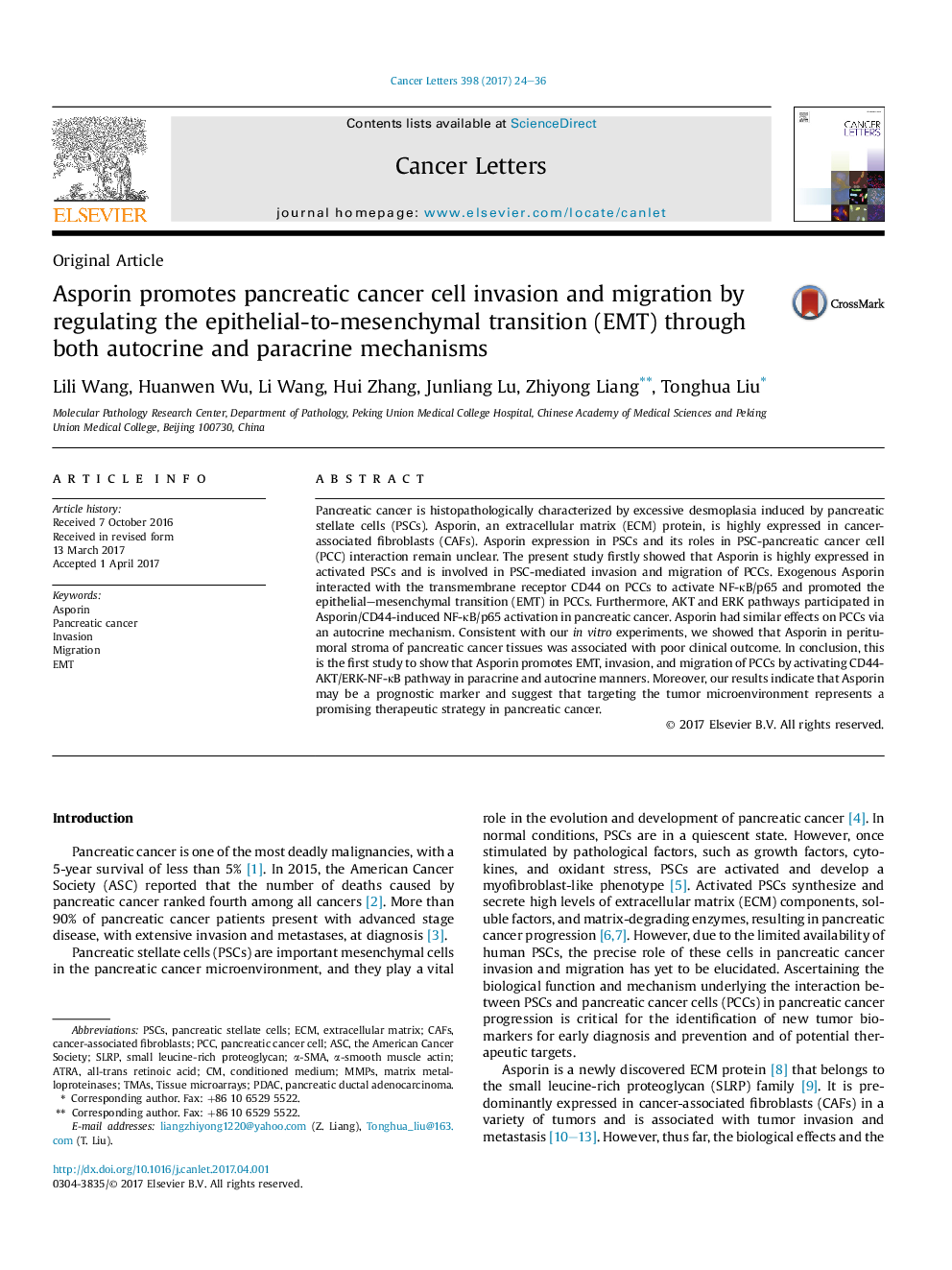| کد مقاله | کد نشریه | سال انتشار | مقاله انگلیسی | نسخه تمام متن |
|---|---|---|---|---|
| 5525491 | 1546671 | 2017 | 13 صفحه PDF | دانلود رایگان |

- The expression and distribution of Asporin in pancreatic cancer are confirmed.
- Asporin promotes invasion and migration of pancreatic cancer by regulating the EMT.
- Asporin exerts its biological roles through autocrine and paracrine manners.
- Asporin may be a potential prognostic biomarker for pancreatic cancer.
Pancreatic cancer is histopathologically characterized by excessive desmoplasia induced by pancreatic stellate cells (PSCs). Asporin, an extracellular matrix (ECM) protein, is highly expressed in cancer-associated fibroblasts (CAFs). Asporin expression in PSCs and its roles in PSC-pancreatic cancer cell (PCC) interaction remain unclear. The present study firstly showed that Asporin is highly expressed in activated PSCs and is involved in PSC-mediated invasion and migration of PCCs. Exogenous Asporin interacted with the transmembrane receptor CD44 on PCCs to activate NF-κB/p65 and promoted the epithelial-mesenchymal transition (EMT) in PCCs. Furthermore, AKT and ERK pathways participated in Asporin/CD44-induced NF-κB/p65 activation in pancreatic cancer. Asporin had similar effects on PCCs via an autocrine mechanism. Consistent with our in vitro experiments, we showed that Asporin in peritumoral stroma of pancreatic cancer tissues was associated with poor clinical outcome. In conclusion, this is the first study to show that Asporin promotes EMT, invasion, and migration of PCCs by activating CD44-AKT/ERK-NF-κB pathway in paracrine and autocrine manners. Moreover, our results indicate that Asporin may be a prognostic marker and suggest that targeting the tumor microenvironment represents a promising therapeutic strategy in pancreatic cancer.
Journal: Cancer Letters - Volume 398, 10 July 2017, Pages 24-36